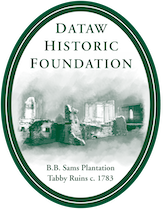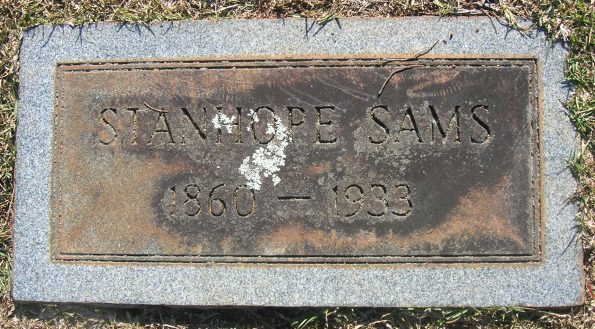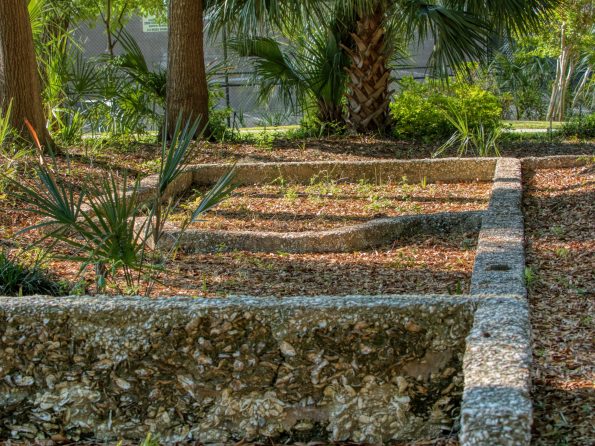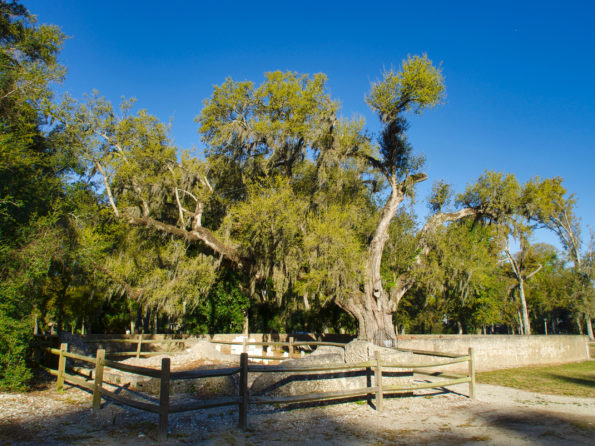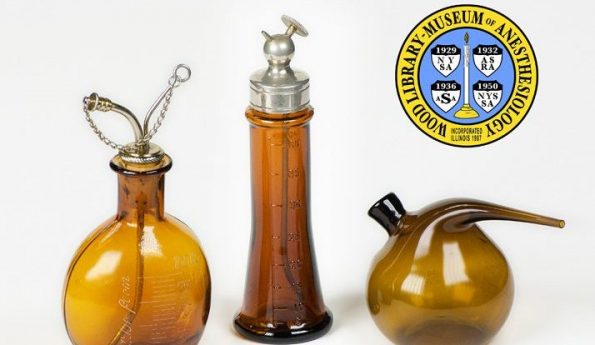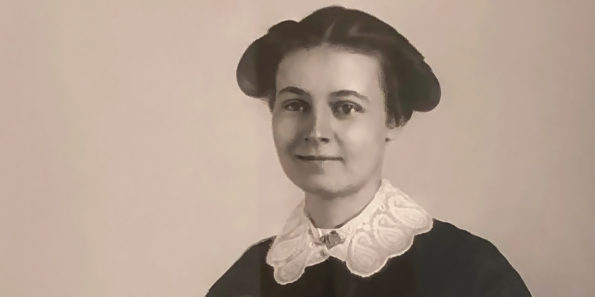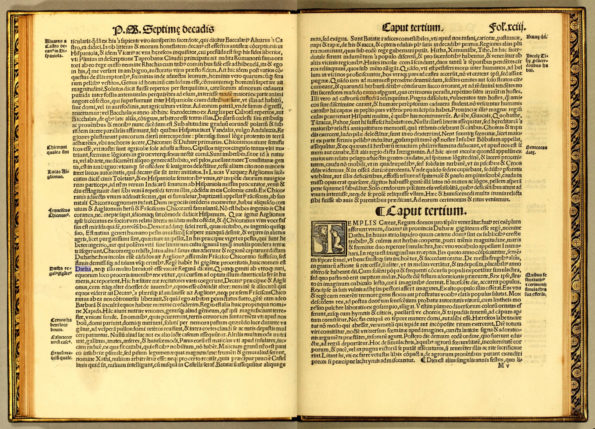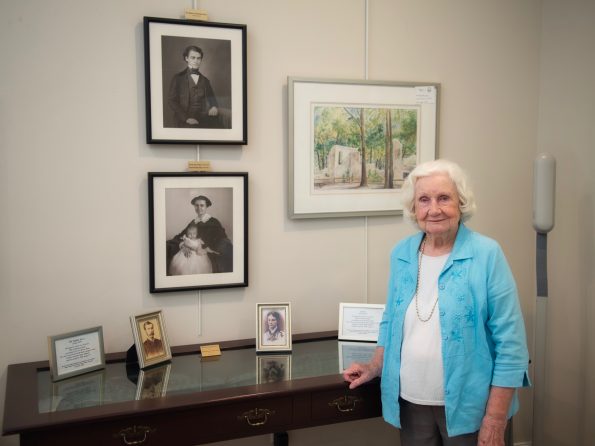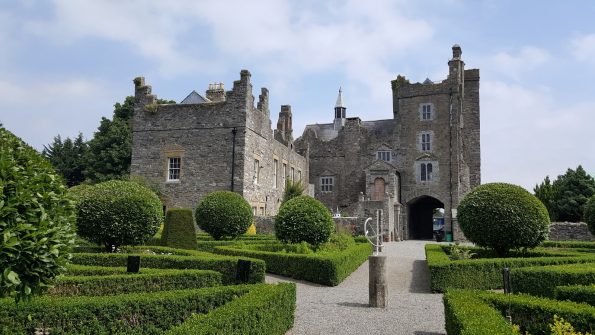Bill Riski is a retired USAF Officer and systems engineer. His hobbies include history, photography, writing, and travel. Maintaining this website is a labor of love for the Dataw Historic Foundation in the Lowcountry of South Carolina, where he and his wife now live.
This week in my 52 Sams in 52 Weeks series the theme is TRAVEL. Several weeks ago, I happened to bump into a Sams that had moved to Japan. So I penciled him into Week 20 – TRAVEL, suspecting he might be an exciting story. Miles Stanhope Sams (1860 – 1933) was the grandson of Lewis Reeve Sams and his first wife, Sarah Fripp.
The Sams family’s success and prosperity could not have been achieved without the hundreds of enslaved men, women, and children who worked silently tilling the land, harvesting the sea island cotton, building the structures, and serving their Sams masters in many ways. Datha’s enslaved peoples were an undeniable and vital part of this island’s plantation era history. Their lives and work on plantations on Datha Island, Ladys Island, and St. Helena Island spanned three generations of the Sams family.
Women’s History Month was ‘born’ in 1987, though its roots go back to 1911. So many Sams women, and we don’t know enough about them. It seems reasonable to assume they all were strong to survive the circumstances of their southern antebellum era. For most women, their role in the family in the 19th century was still defined by the husband [Hussung, 2015.]
Here are four particular women who persevered, even excelled, despite the challenges they encountered back then: Elizabeth Fripp Sams, Sarah Stanyarne Sams Sams, Ma Lilly, and Kate Gleason.
We are compiling a list of the “Grande Dames of Datha Island” and adding each tree’s location and approximate age to the map below. We’d love to have residents participate by going to the Google Form at this link and entering data on whichever tree you wish.
For the Sams of Datha Island (19th century name), there is a particular source of their prosperity; Sea Island cotton.
In my recent post on Sarah J Sams, you saw restored photographs of her and her husband, Dr. R Randolph Sams. Large reprints are hanging in the Dataw Island History & Learning Center through the generosity of Teresa (Winters) Bridges. Sarah’s original image (i.e., ambrotype) holding their daughter Phoebe was taken in about 1858 when Sarah was in her early 20s. Randolph’s image (i.e., daguerreotype) shows a handsome young man upon graduation from college in 1849, also in his early 20s. What’s most interesting about Dr. R. Randolph Sams is his role in the earliest days of modern dentistry.
Reproduction of a circa 1858 ambrotype of Sarah Jane Graham (Sams) Sams (1835 – 1920), courtesy of Teresa Bridges. Sarah Jane Graham Sams married Dr.Robert Randolph Sams (1827 – 1910),…
In response to an article about Northern Datha Island, a resident who has lived here thirty years (!) commented, “I have always questioned why ALCOA did not call the Island by its real name: Datha?”
Researching this question took me on a fascinating journey from a Muskogean Indian Chief to the King of Spain to the U.S. Board on Geographic Names. In the end, I can provide this answer; Dataw Island is the name of our development on a sea island in South Carolina called Datha Island.
What’s left for this journey is to explain why our sea island is called Datha Island and why our development is called Dataw Island.
You are looking at the faces of a family deeply affected by the Civil War and looking for a brighter future. This photo is dated 16th October 1866. On the back are the words, ‘Picture taken just as family was leaving S.C. for Galveston, Texas.’ Dr. Lewis Reeve Sams, Jr. (1810 – 1888) took his family ”so far away” from Beaufort, SC.
The people in this single image above span 184 years of Sams descendants; from today back to the working plantation days when B.B. Sams was growing Sea Island cotton here on Dataw Island.
Dr. Berners Barnwell Sams, M.D. (1787 – 1855) – BB Sams is named after his Great Grandmother Elizabeth Anne (Berners) Barnwell and his Grandmother Bridgett (Barnwell) Sams, according to Sams’ family descendants. Berners Barnwell Sams was the son of William Sams (1741-1798) and Elizabeth (Hext) Sams (1746-1813). He inherited one-third of his father’s Dataw Island plantation in 1808 when he came of age. We know a fair amount about Dr. BB Sams. However, today we have a much more colorful understanding of the man. In 2019 we were given a copy of an unpublished family history penned in the early 1900s by Conway Whittle Sams (grandson of BB Sams). This unpublished work contains a first-person description of Dr. BB Sams provided by his daughter, Elizabeth Exima Sams in 1905.
Barnwell was born in Dublin, Ireland, the son of Alderman Matthew Barnwell and Margaret Carberry. Matthew Barnwell was killed in the Siege of Derry in 1690 as a captain in James II’s Irish Army, which attempted to restore the last Stuart king to the English throne. The family seat, Archerstown in County Meath, was forfeited as a consequence of these events. John eventually took flight for North America in 1701. (Rowland) He became a colonist in the territory then called Charles Towne in the colony of Carolina. His timing coincided with the emergence of the rice culture and the associated prosperity.
